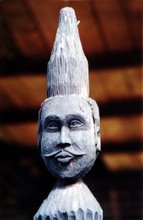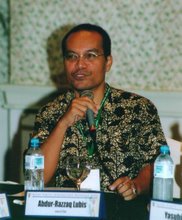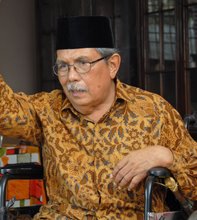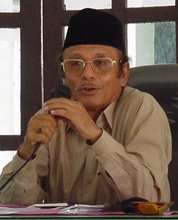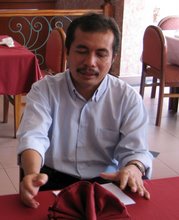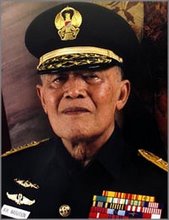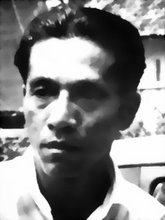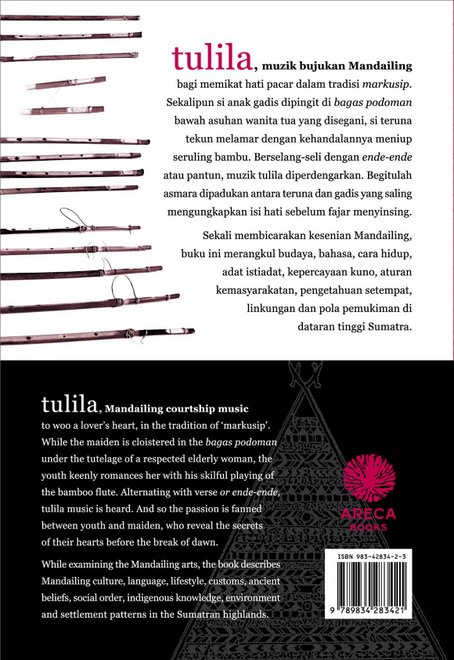
Mocthar Lubis
Known for his exposés of government corruption and inefficiency, the legendary Indonesian editor Mochtar Lubis was jailed by two presidents while his newspaper, the daily Indonesia Raya, was banned six times. “Unable to report except accurately or to comment except honestly, he was bound to get into trouble with the despot Sukarno and the autocrat Suharto,” said author and journalist Robert Elegant.
Lubis was first imprisoned in December 1956. As a result of strong protests by the International Press Institute (IPI) among others, he was transferred to house arrest in January 1957. However, he was neither charged nor set free until April 1961. That year, he was given a hero’s welcome at the IPI General Assembly in Tel Aviv, where he attacked Sukarno’s treatment of the press in a courageous speech.
On returning to Jakarta from Tel Aviv, Lubis was promptly arrested and jailed. From a military prison in Madiun, hundreds of kilometers from his Jakarta home, Lubis smuggled out occasional letters, some of which were printed in IPI Report. After nine years in prison, he wrote: “I am a stubborn old fool and am fully convinced that our era is the era of human freedom and human cooperation and not the era of human enslavement and inevitable confrontation. ... But only a truly free press can help build up traditions of freedom, the respect of law, for public rights, for private rights, to fight against the abuse of power, against corruption — moral and material.”
Lubis was freed after nearly 10 years in jail following the overthrow of Sukarno. After his release, he revived Indonesia Raya in 1968 and resumed his role in pointing out government corruption. Lubis was soon to be in trouble again — this time for exposing corruption in the new government and among President Suharto’s family members. Along with many other publications, Indonesia Raya was closed down for good after the riots that accompanied the 1974 visit to Indonesia by the Prime Minister of Japan, Kakuei Tanaka. A year later, in February 1975, Lubis was again arrested. After weeks of interrogation by the military, he was imprisoned on charges of sedition for allegedly having mobilized students to demonstrate against the Japanese prime minister’s visit. The international press came forcefully to his defense, and he was released after two and a half months in prison on Apr. 15.
Mochtar Lubis was born on Mar. 7, 1922. Before taking over the editorship of Indonesia Raya in 1952, he worked as foreign affairs editor of the Indonesian National News Agency, Antara, from 1945 to 1952, and published the first English-language newspaper in Indonesia, the Times of Indonesia, in 1952. In 1966, he founded a cultural and literary monthly, Horison. A former member of the IPI Executive Board and chairman of IPI’s National Committee in Indonesia, he is also a renowned novelist, poet and essayist.
Lubis’s courage during the Sukarno and Suharto years became a byword in Asia and wherever the press was under attack. He was long ignored by the self-censoring media in his own country because of his firm belief that universal human rights should not be superseded by the notions of unity and nation-building. However, he is today regarded by his countrymen as the doyen of the Indonesian press and a symbol of courageous and independent journalism.
http://www.globaljournalist.org/archive/Magazine/Lubis-20002q.html
